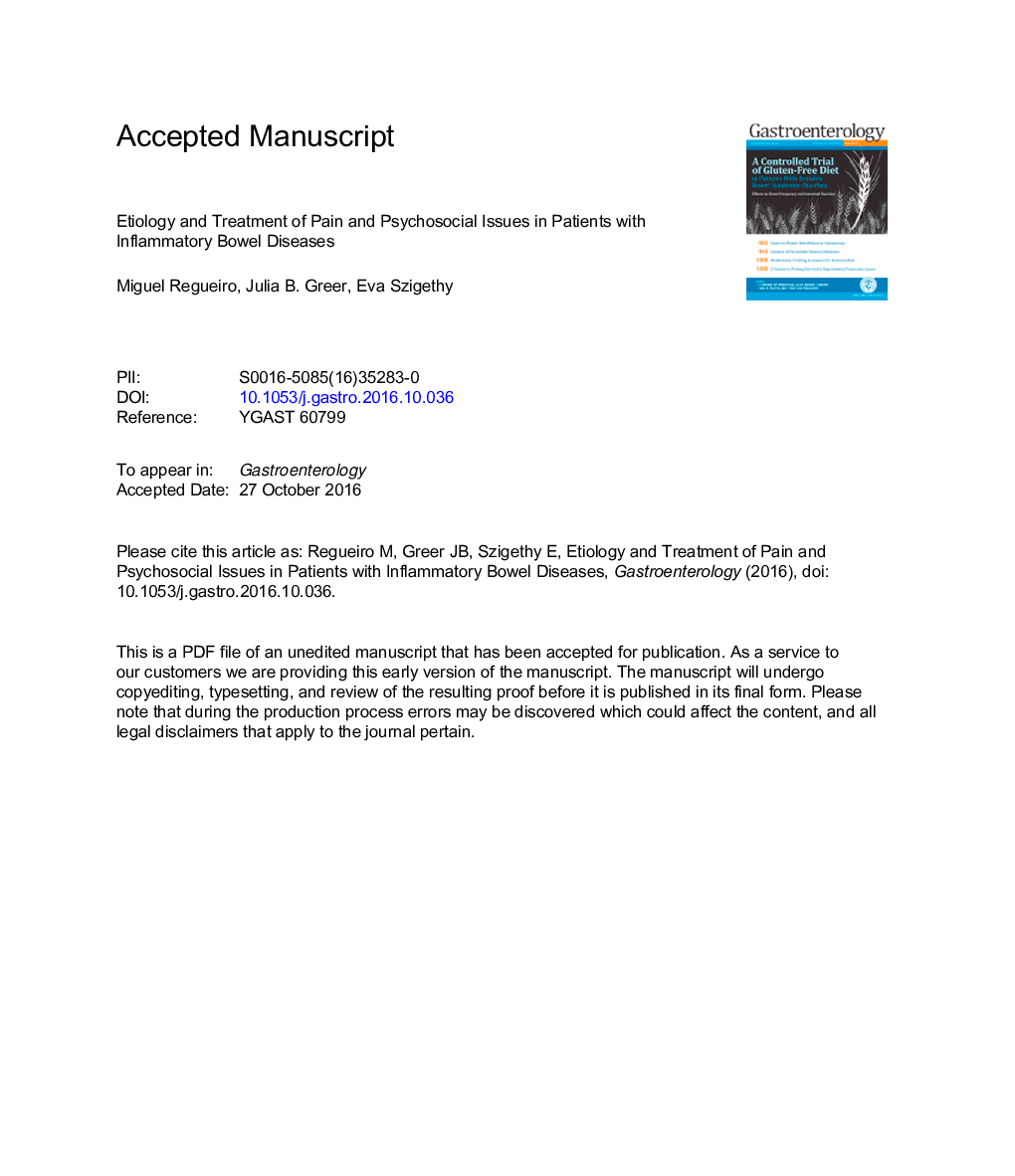| Article ID | Journal | Published Year | Pages | File Type |
|---|---|---|---|---|
| 5658311 | Gastroenterology | 2017 | 31 Pages |
Abstract
There is increasing evidence that brainâgut interactions are altered during development of inflammatory bowel diseases (IBDs). Understanding the relationship between the neurobiology, psychological symptoms, and social ramifications of IBD can guide comprehensive care for the whole patient. The most common psychological conditions in patients with IBD are chronic abdominal pain, anxiety, and depression. We review the evidence-based data and rates of these conditions and their respective relationship to IBD and the diagnostic approaches to identify patients with these conditions. Different treatment options for pain and psychosocial conditions are discussed, and new models of team-based IBD care are introduced. Providing the health care provider with tools to diagnose and manage psychological conditions in patients with Crohn's disease or ulcerative colitis is necessary for their total care and should be part of quality-improvement initiatives.
Keywords
Related Topics
Health Sciences
Medicine and Dentistry
Gastroenterology
Authors
Miguel Regueiro, Julia B. Greer, Eva Szigethy,
